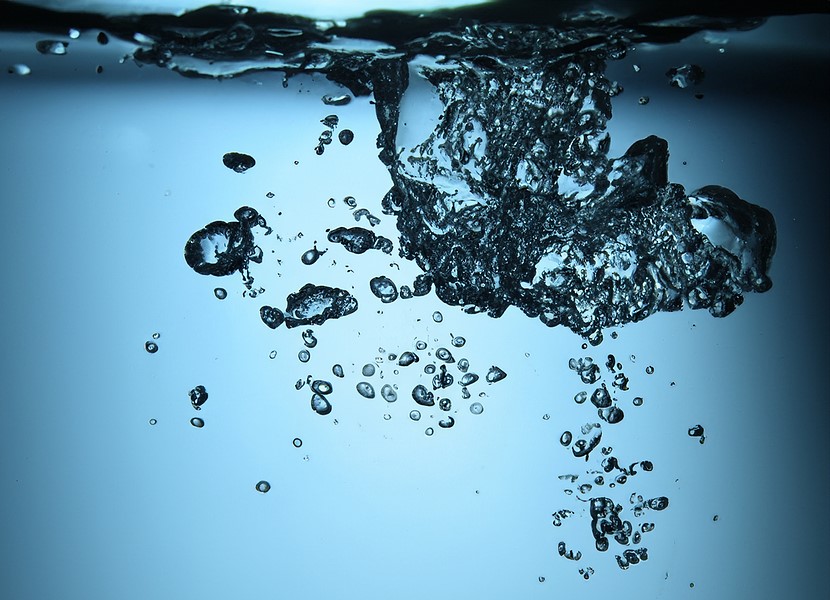News
Have You Been Inspired By World Water Week?
This year’s World Water Week has just come to close, taking place in Stockholm (and online) between August 20th and 24th, focusing on identifying innovative solutions to tackle the water crisis head on and ensure that we can continue to thrive in an increasingly unstable and water-scarce world.
The event itself has been taking place each year since 1991, where leading organisations and a diverse mix of professionals from a range of different backgrounds from all over the world come together to develop solutions to water-related challenges, covering everything from food security and health to biodiversity, agriculture, technology and the overarching climate crisis.
Over the course of the five days, six key trends emerged that will prove instrumental in addressing the situation:
#1 Interconnectivity
Many keynote speakers discussed just how important it is to focus on how transformations can take place, rather than simply listing the problems that the world is now facing. A strong emphasis was placed on intergenerational dialogues and how we can learn from each other, as well as the critical roles that both trust and inclusion have to play.
#2 Rethinking innovation
The theme of innovation was first presented at last year’s event, but this time around it was reaffirmed that innovation isn’t just associated with technology, but it can be applied more broadly in areas including culture, values, finance and governance.
#3 Indigenous learning
This year, for the first time, specific focus was placed on the knowledge of indigenous people, with representatives from 20 different groups taking to the stage to share their own views and experiences.
Some of the biggest takeaways included the importance of values like relations, respect and reciprocity, as well as how essential it is to avoid making generalisations.
#4 Ocean focus
One emerging trend is the adoption of a source-to-sea approach, where freshwater, coastal regions and oceans are all treated as one entity, rather than being considered separately.
#5 Water governance
Water governance and what this will look like in the future was one of the main topics of discussion throughout the week and how this will need to change in response to the pressure now being put on the global water cycle and what the consequences of this will be.
#6 International cooperation
Keynote speakers also took the opportunity over the five-day event to deliver sessions on how to prepare for international processes, including the SDG Summit (taking place in New York between September 18th and 19th) and COP 28 (taking place between November 30th and December 12th in Dubai).
What is meant by innovation?
What is necessary now is for the world to make improvements where water management is concerned. If this can be achieved, both the water crisis and climate change can be addressed while reducing issues like poverty and inequality at the same time.
We’re lucky in that we have access to incredible technology that ensures we’re able to solve problems that, without it, would remain unsolvable, but the World Water Week organisers are keen to stress that a broader kind of innovation needs to be prioritised now.
This will see an integration of behavioural change, systems thinking and governance to tackle the water crisis. Ideas will be applied to all aspects of water to ensure that the systems in place are fully equipped to cope in a more unstable and unpredictable world.
By combining innovation with good practice significant change can be achieved and societal goals can be reached at scale a lot more efficiently.
For example, traditional governance, business models and technology hasn’t been able to keep pace with the SDG climate change targets, particularly where access to water and sanitation, and water resources, is concerned.
However, by embracing new concepts of innovation, equity of access can be improved, as can efficiencies, cost, service quality and reach, while promoting inclusion of vulnerable groups and minorities all over the world.
What can we expect for next year?
Karine Gardes, acting executive director of event organiser the Stockholm International Water Institute, confirmed that the theme for 2024 will be Bridging Borders.
She went on to say: “The interest in the topic has grown immensely because there is an understanding that if we do not fix water, it has effects on so many other dimensions of society including peace and a sustainable future.
“It is important to build on this interconnectivity and understand it. Having said that, while the interest is great, there are still many people who are unsure how to go about it and how water diplomacy can be put into practice. In the spirit of finding solutions, World Water Week 2024 will focus on building bridges.”
How can businesses get involved?
We all have our part to play in reducing pressure on freshwater supplies globally and businesses are particularly well placed to make a significant impact in this regard.
There are many different ways in which you can reduce the water footprint of your business operations, whether you want to look into automated meter reading, rainwater harvesting, water leak detection and repair or something else.
Before you can decide on the best water-saving strategies for your company, however, you need to gain an in-depth understanding of how and where you use water.
Once you’re armed with this knowledge, you can then identify the weak areas across your operations and across your supply chain as a whole, to ensure that you adopt the best conservation methods for you, those that will make the biggest and most immediate impact.
If you’d like to find out more about how to become more water wise as a business, get in touch with the H2o Building Services team today.
